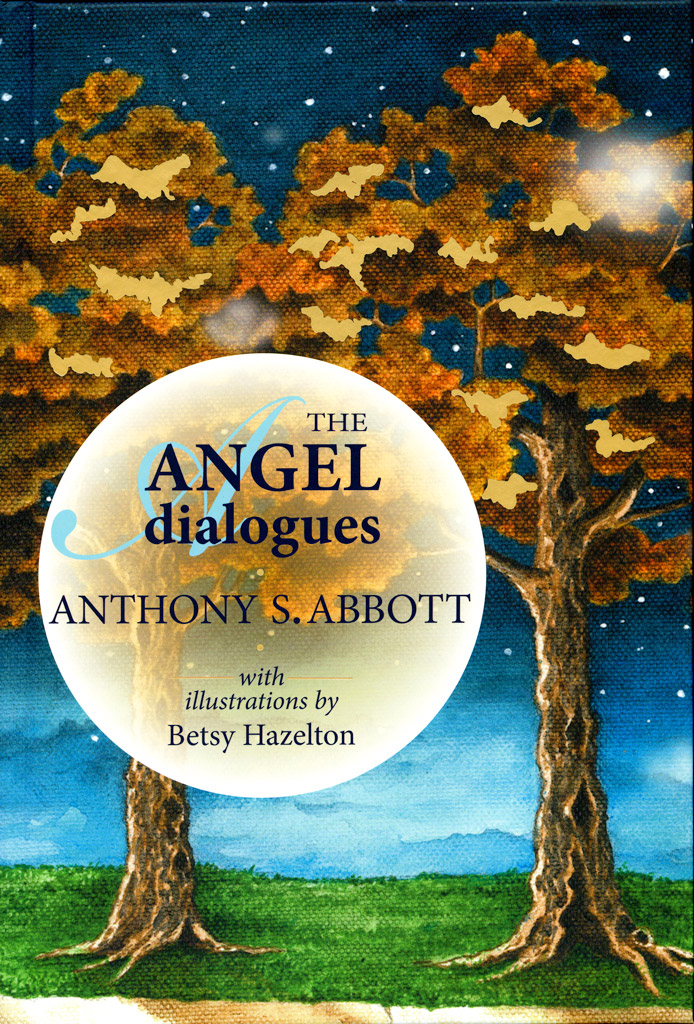
The Angel Dialogs
Published March, 2014 – This book is not really a collection of poems; rather, it is a narrative, a story that takes place over a year, in which a poet, who has prayed for a muse, receives instead an angel who teaches him much about what it means to be a human being, and leaves him, at the end of that time, wiser, healthier, and more spiritually aware.
Abbott miters each poem into the next with the precision of a master carpenter, in language that moves seamlessly, often floating, from impressionism into a quirky vernacular narrative …
— Joseph Bathanti, Poet Laureate of North Carolina 2012
(T)his angel … is a double-tasking, sarcastic, Yeats-reading, quantum-leaping trickster …
— Cathy Smith Bowers, Poet Laureate of North Carolina 2010-2012
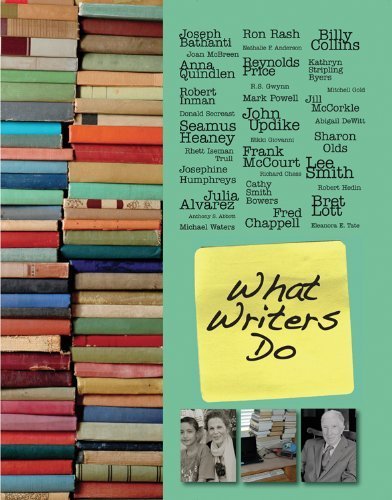
What Writer’s Do
Published November, 2011 – A behind the scenes look at the craft of writing. For more than 20 years the Visiting Writers Series at Lenoir-Rhyne University has championed great writers — both established and emerging. Rand Brandes, series founder and editor, and Anthony Abbott, this volume’s editor, have brought together some of the series’ most beloved and memorable writers to form a collection that includes: new prose by Bret Lott, Mark Powell and Dori Sanders; new poems by Sharon Olds, Fred Chappell and Billy Collins; and classic memoir excerpts by the likes of John Updike, Reynolds Price and Frank McCourt. More than words, this volume also features photographs of the writers and where they work.
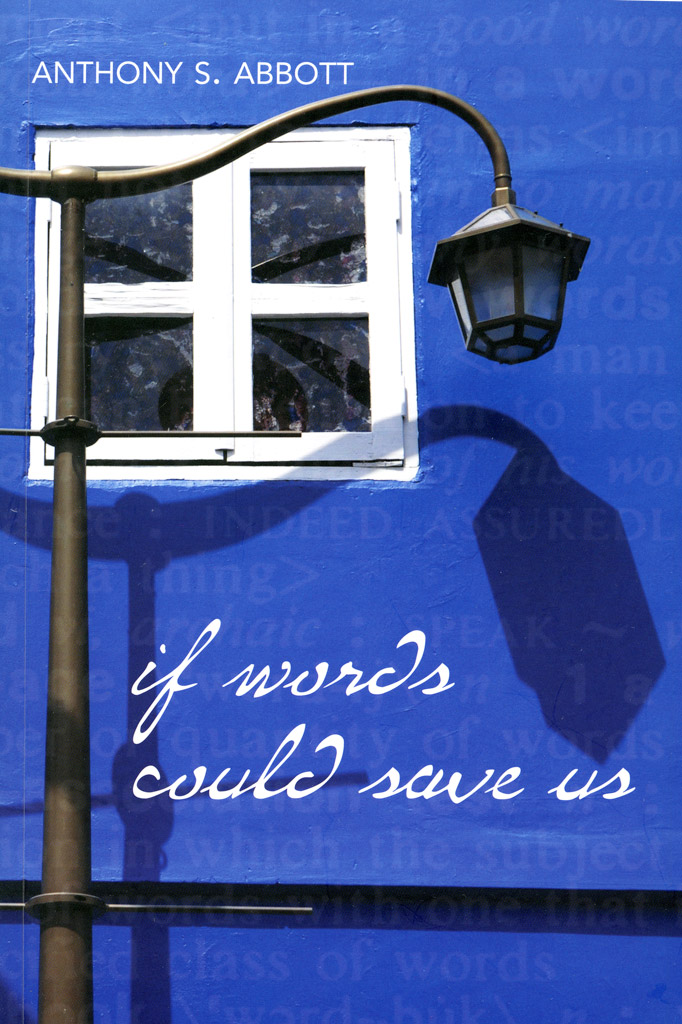
If Words Could Save Us
Published October, 2011 – Poetry Collection
Anthony Abbott’s most recent collection of poetry, is stunning in both craftsmanship and sensibility. In poem after poem he forges a compassionate pact with the world and, like all enduring pacts, it is one that sustains and confirms—the poet’s life, ours, and the great healing powers of language.
— Robert Hedin, author of Old Glory
Oh Lord what a wonderful book — joyous and profound! Tony Abbott is a master of dealing with nothing less than the great circling round of life itself – the whole ball of wax – from youth to adulthood to the unexpected grace of old age.
—Lee Smith, author of Mrs. Darcy and the Blue-Eyed Stranger and The Last Girls
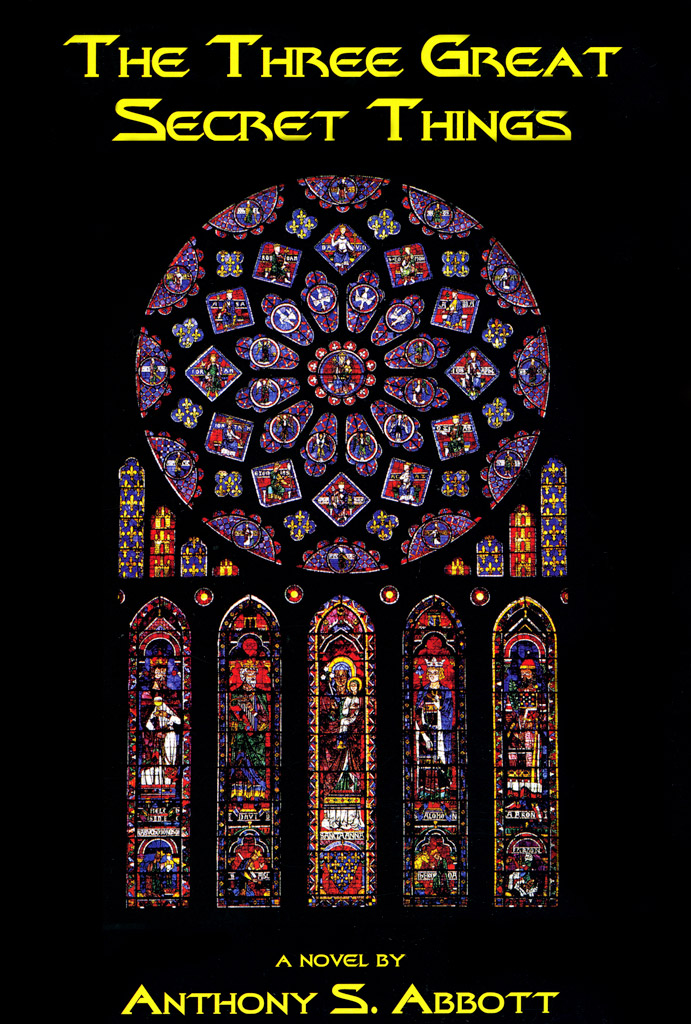
The Three Great Secret Things
Published September, 2007 – The sequel to Leaving Maggie Hope, the story is set in 1950, just after World War II, the dilemmas it contains are relevant to our new century as well. How is it best to be, David wonders, where do I go and what do I need for the trip? He has his mother’s old brown leather suitcase with the gold letters stamped M.H. for Maggie Hope, but maybe there is something else he needs.
The Three Great Secret Things takes us back into that strange era, that oddly innocent time, when a boy could lose his heart to God, poetry, and a bright sassy girl all at once and on purpose. Anthony Abbott treats his boarding school characters with great tenderness and respect, following young David Lear as he pursues the three great loves that secretly ARE his education (and the one sassy girl is one we won’t forget for a long time to come.)
— Josephine Humphreys, author of “No Where Else on Earth”
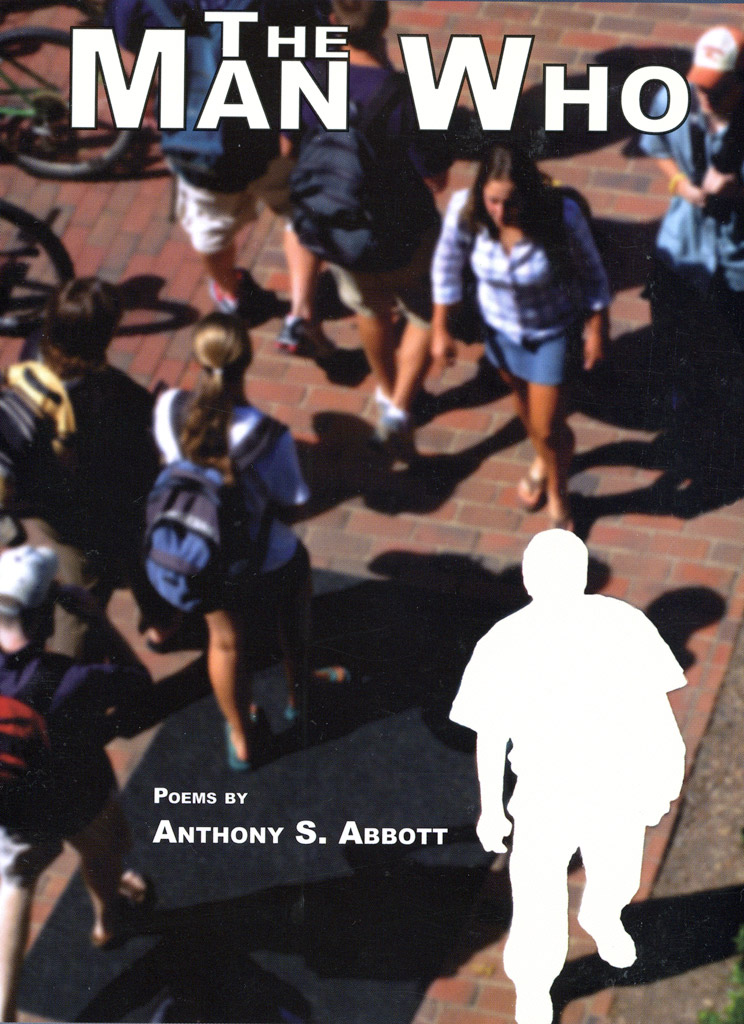
The Man Who
Published November, 2005 – Poetry Collection
Tony Abbott’s The Man Who is a shape-shifter of a book, leading us subtly, often slyly, to the edge of sight and then saying, “Look!” When poetry has enabled us to see our own breath, it has fulfilled its promise. It has helped us walk back into our lives.
— Kathryn Stripling Byer, North Carolina Poet Laureate 2005-2009
In the Tony Abbott of The Man Who we have a master puppeteer who works them all. And when you stare into the puppets long enough (as in the Japanese Bunraku puppet theatre) the puppeteer has suddenly disappeared. Each Man Who is alive, just so. The range is amazing. Can you imagine the combined insights, the perceptions at once painful and tender of a John Berryman and a William Stafford? Look no further, Friend. Yes, . . . Light creeps in/ after darkness even when we think/ it never can.
—Ron Bayes, Founding Editor St. Andrews College Press
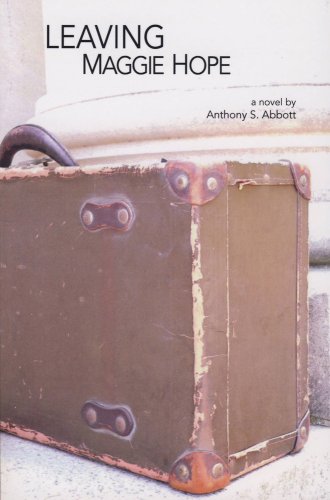
Leaving Maggie Hope
Published October, 2003 – For David Lear, ten years old, there has never been anybody quite like his mother. She can be so caring, so warm and funny, but there are times when her drinking sweeps her away, and her affection gives way to verbal abuse, and sometimes even violence. Then David tries to run away from home, and is sent away to boarding school. To confront the legacy of his family, he spends time with a father he hasn’t seen in years, a stepmother who loathes him, and a mysterious benefactress who pays for his schooling. They offer bits and pieces of revelation, but at the center is his mother, Maggie Hope, whose life has long since slipped from its moorings.
Leaving Maggie Hope is the most moving coming-of-age story I have read in many years. The pain of having an unreliable mother is scary and very real and so is David’s journey toward a hard-won self-reliance as he learns that love may be found in surprising places. Like Kaye Gibbons’ novel Ellen Foster, this is a book for all ages to read and read again.
— Lee Smith, author of The Last Girls and Fair and Tender Ladies
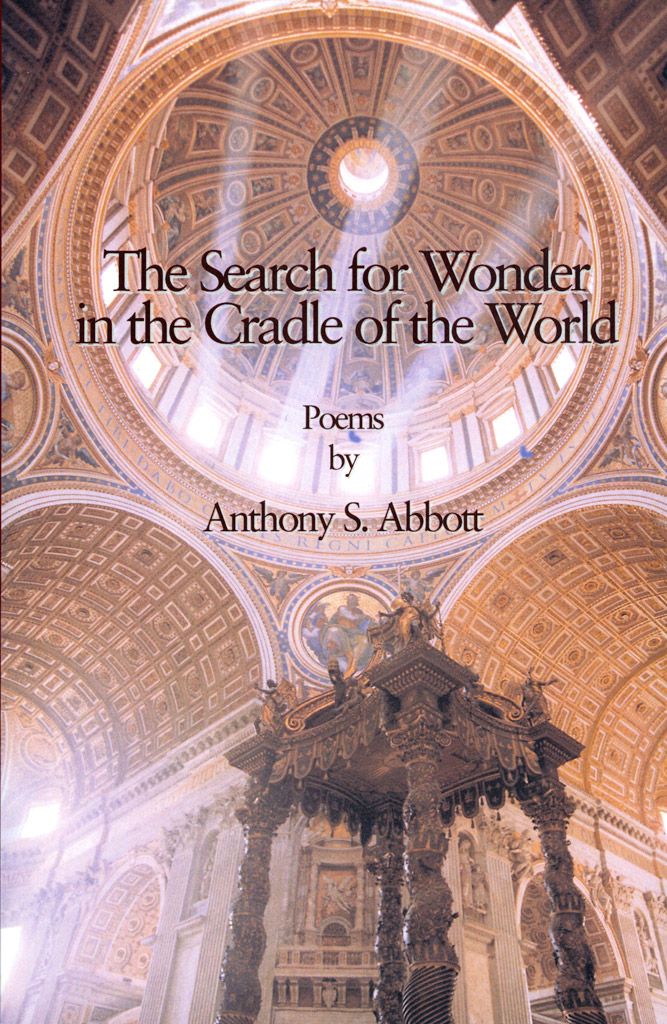
The Search for Wonder in the Cradle of the World
Published July, 2001 – Poetry Collection
“I dig with the boots of memory,” the poet says, and this figure of speech, homely, disturbing, wry, suggests the tone of The Search for Wonder in the Cradle of the World. Here are poems of loss, of triumph, of heartbreak, of dark probing, of love–most of all of love in a thousand guises.
— Fred Chappell
I was first struck by the voice in Tony Abbott’s poems. The idiom is contemporary, alive, dramatic, the lines fluent and exact. The language is alert, resourceful. I admire the delight and celebration, the openness and honesty, the willingness to confront fear. I admire the fullness of emotions in the poems, even a sense of the miraculous that takes us back to the very source of poetry ‘in the cradle of the world,’ as well as forward to poetry of the future.
— Robert Morgan
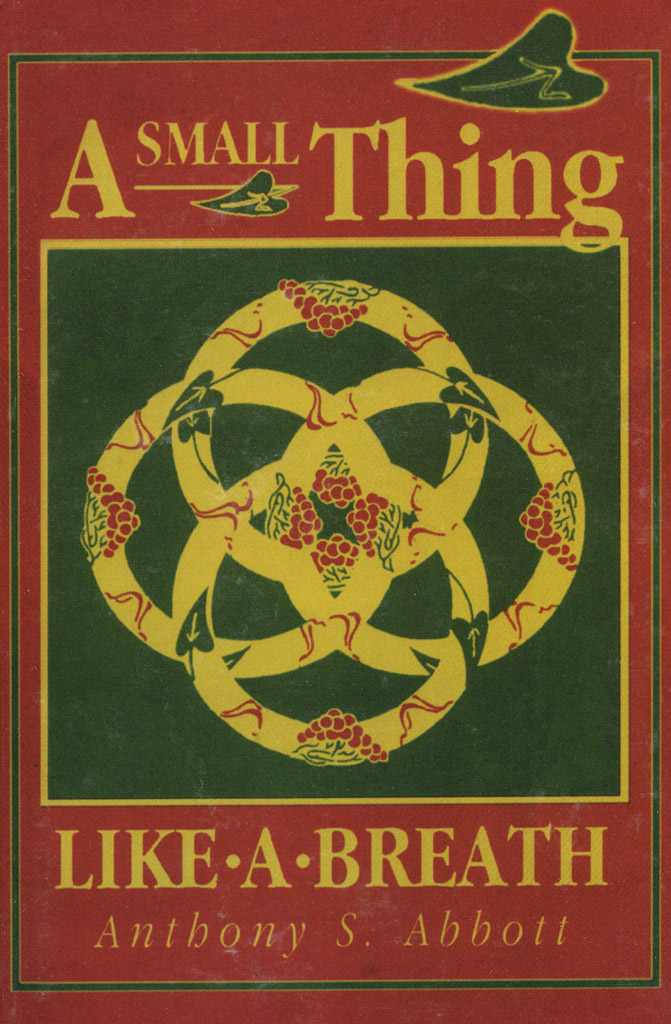
A Small Thing Like a Breath
Published October, 1993 – Poetry Collection
“A Small Thing Like A Breath” represents Tony Abbott at his best. It is a warm and beautiful, and beautifully accomplished book of unusual range in subject matter and technique. There are subjective and objective poems, poems in close about personal relationships and poems ‘far from home’ that show Abbott’s wide acquaintance with the world, and some of the most delightul poems about dogs that I have read.
— Charles Edward Eaton
These are poems that are achingly real, as so much current poetry is not. These poems are about people, and about the moments in our lives that change us forever -they are about joy, about loss, about the dark places of the heart. These poems are not about word-play, or cleverness. They are about us.
— Lee Smith
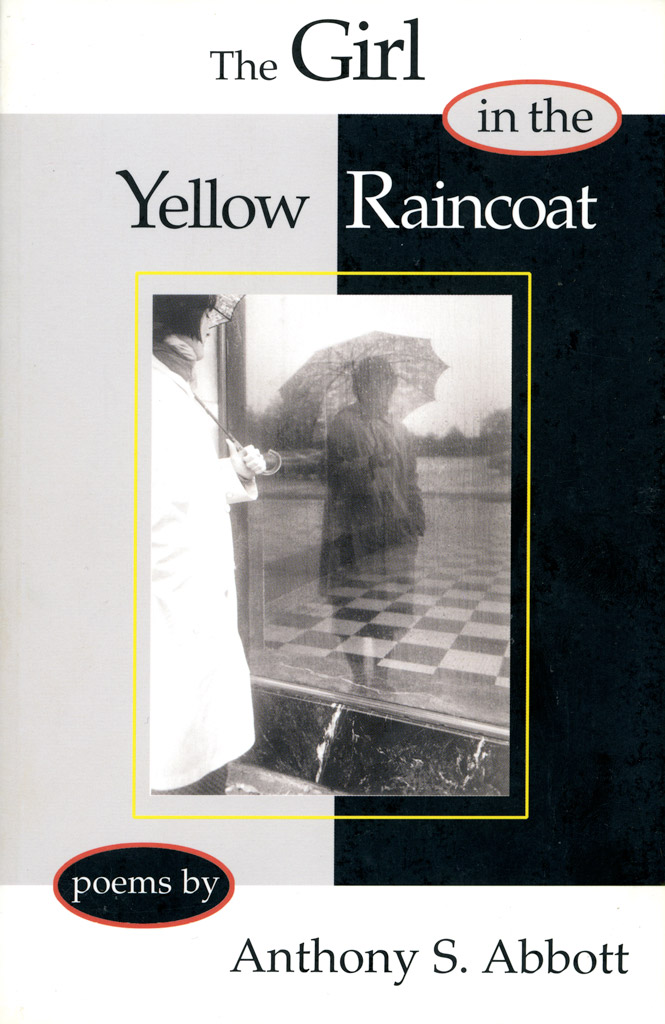
The Girl in the Yellow Raincoat
Published 1989 – Poetry Collection
In Abbott’s vibrant collection of poems, a lucid voice embraces a lyric intelligence of impressive power and understanding . . . with their passionate knowing of important things, Abbott’s poems secure a place in the mind and persist there, becoming familiar and loved.
— Stephen Sandy
The Girl in the Yellow Raincoat is a moving and intelligent book. Abbott’s wide knowledge of literature informs his experiences; his experience deepens his understanding of literature. And he remembers the especially remembers “the way boys dream” — at whatever age they are.
— Fred Chappell
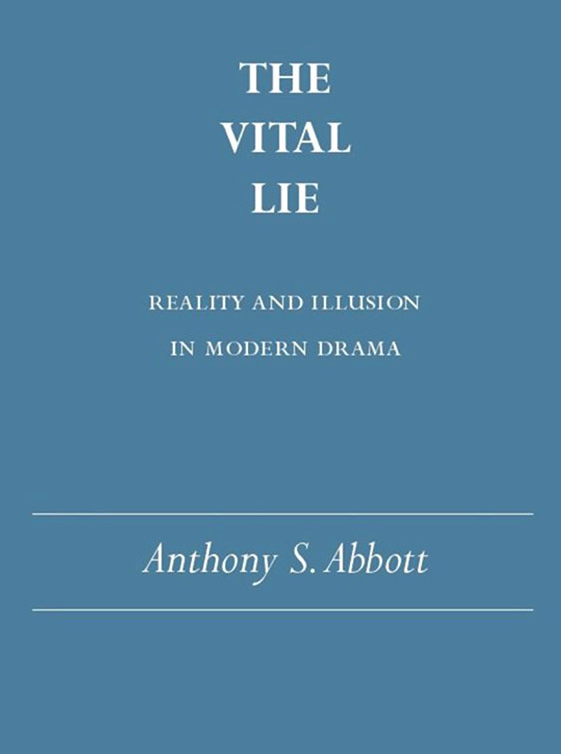
The Vital Lie: Reality and Illusion in Modern Drama
Published June, 1989 – The Vital Lie is the first book to examine the reality-illusion conflict in modern drama from Ibsen to present-day playwrights. The book questions why vital lies, lies necessary for life itself, are such an obsessive concern for playwrights of the last hundred years. Using the work of fifteen playwrights, Abbott seeks to discover if modern playwrights treat illusions as helpful or necessary to life, or as signals of sicknesses from which human beings need to be cured. The author develops a three-part historical analysis of the use of the reality-illusion theme, from its origins as a metaphysical search to its current elaborations as a theatrical game.
If there is one theme that connects all Western drama, it is reality and illusion … The Vital Lie examines the complex dimensions of these polarities. The result, a modern historical survey of this persistent concern, offers the most comprehensive and systematic treatment of a theme at once stable and changing, a theme that brings us closer to a definition of the modern.
— Choice
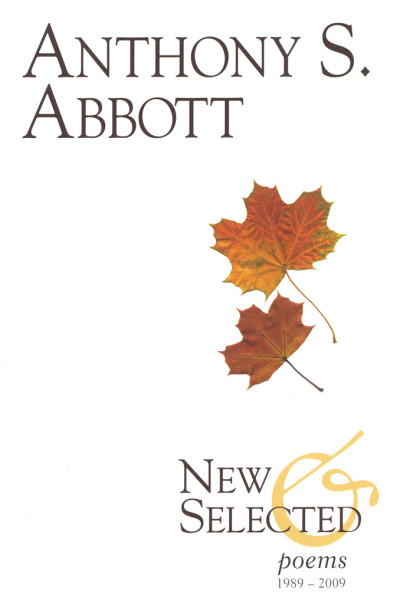
New and Selected Poems: 1989-2009
Published January, 2010 – New and Selected Poems combines the passion and compassion of three decades with the urgency and clarity that have become Anthony Abbott’s signature.
It is a special pleasure to have this gathering of poems from more than three decades, where the range and depth of Tony Abbott’s work are now clear… rare among contemporary poetry, there is a vein of relish, human connection and joy, coursing through Abbott’s poems.
— Robert Morgan, author of The Strange Attractor: New and Selected Poems
A volume full of variety, redolent with reminiscence, urgent with love, colorful with imagery, and affirmative with statement, there is nothing drab or coy here. Abbott’s world is alive, chirping and talking, singing, and thinking.
— Fred Chappell, North Carolina Poet Laureate, 1997-2002